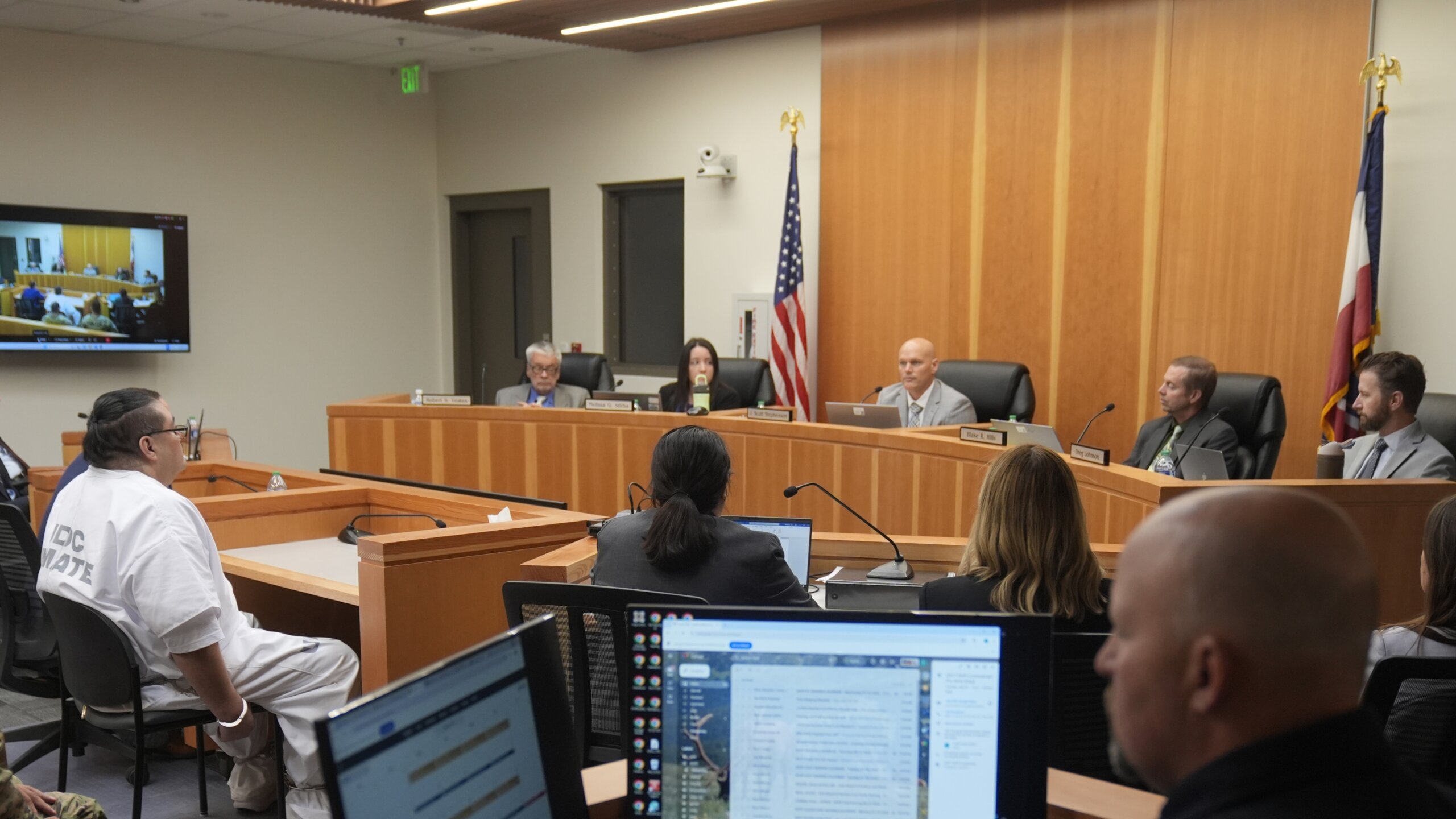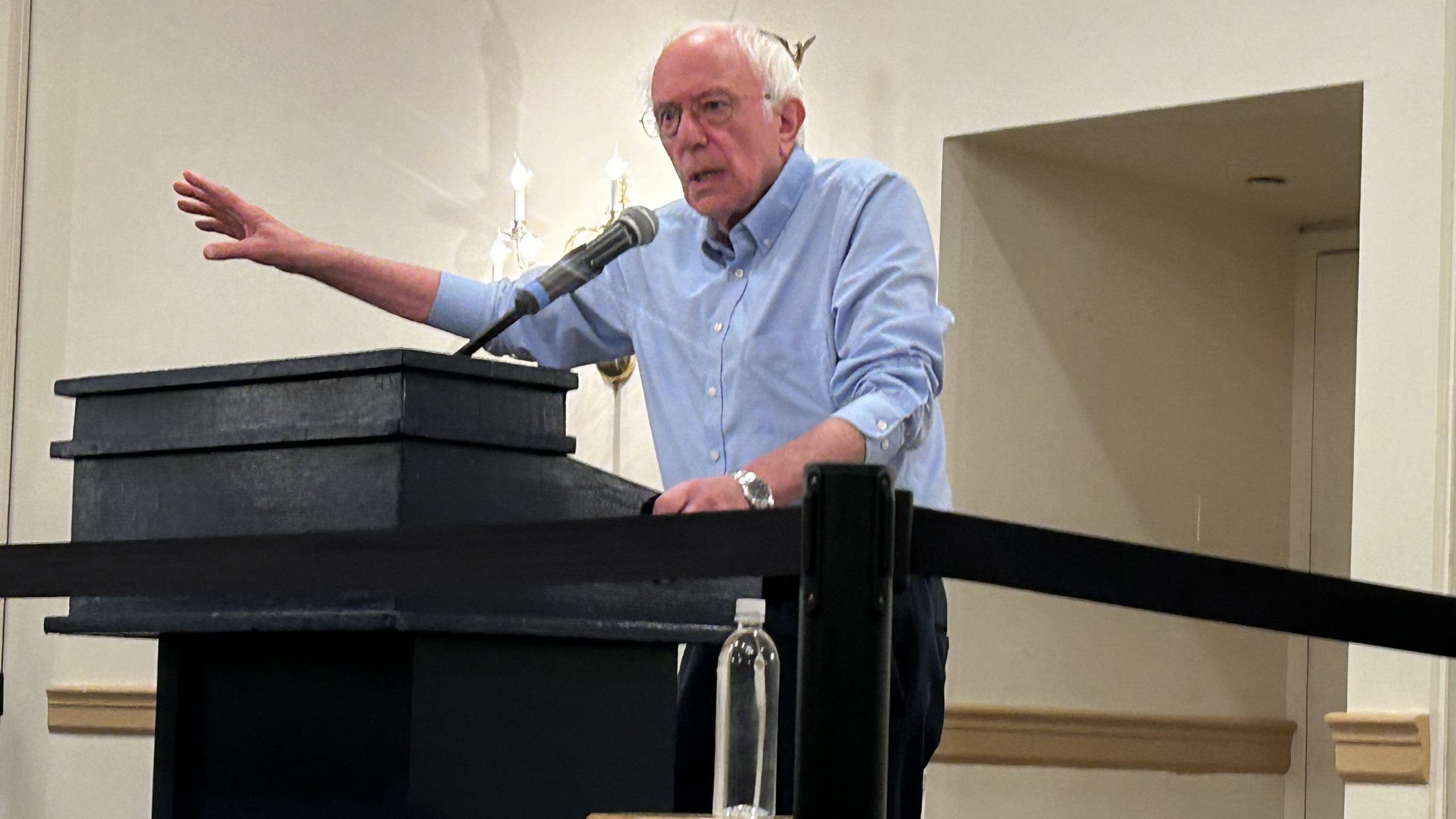World
The Mystery of Indira Gandhi's assassination by her own bodyguards
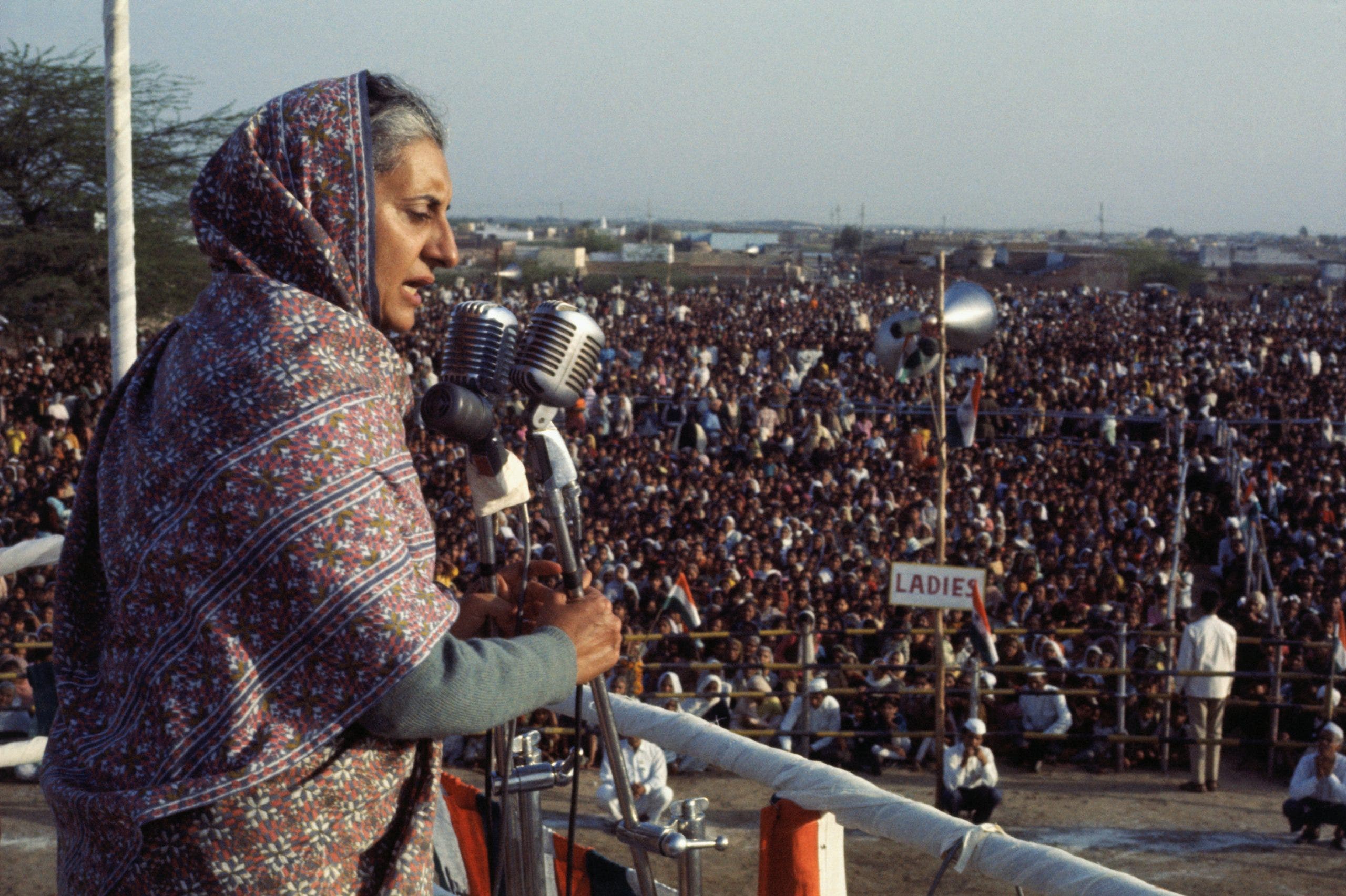
Indira Gandhi, a prominent Indian politician and the daughter of Jawaharlal Nehru, India’s inaugural prime minister, was tragically assassinated by her own bodyguards on Oct. 31, 1984.
Born Nov. 19, 1917, she emerged as a central figure in her country’s political landscape, eventually becoming prime minister in her father’s footsteps.
The trust she placed in her favorite Sikh security guard, following Operation Blue Star, ultimately proved to be a fatal mistake. In exploring the narrative of Gandhi’s assassination, it is crucial to examine the backgrounds and motivations of her assailants, shedding light on the reasons that led to their fatal decision.
Prior to her time in office, Indira Gandhi studied at prominent institutions, including Somerville College, Oxford and the Visva-Bharati University in West Bengal. (Shukdev Bhachech/Dipam Bhachech)
Who was Indira Gandhi?
Gandhi served as her country’s third and only female prime minister starting in 1966 to 1977, and then served another term from 1980 until she died in 1984.
As a central figure of the Indian National Congress, she was admired for her leadership and criticized for her authoritarian approach. She played a significant role in Indian politics and is often cited as a trailblazer for women throughout the country.
ON THIS DAY IN HISTORY, APRIL 26, 1865, JOHN WILKES BOOTH IS KILLED BY UNION TROOPS FOR MURDERING LINCOLN
Gandhi was a key player in Indian politics for 17 years, whether in office or out of it. She played an active role in the Independence movement and closely worked with her father, Jawaharlal Nehru, a pivotal figure in the establishment of contemporary India, serving as his assistant when he was prime minister. In 1959, she also held the position of president of the Indian National Congress.
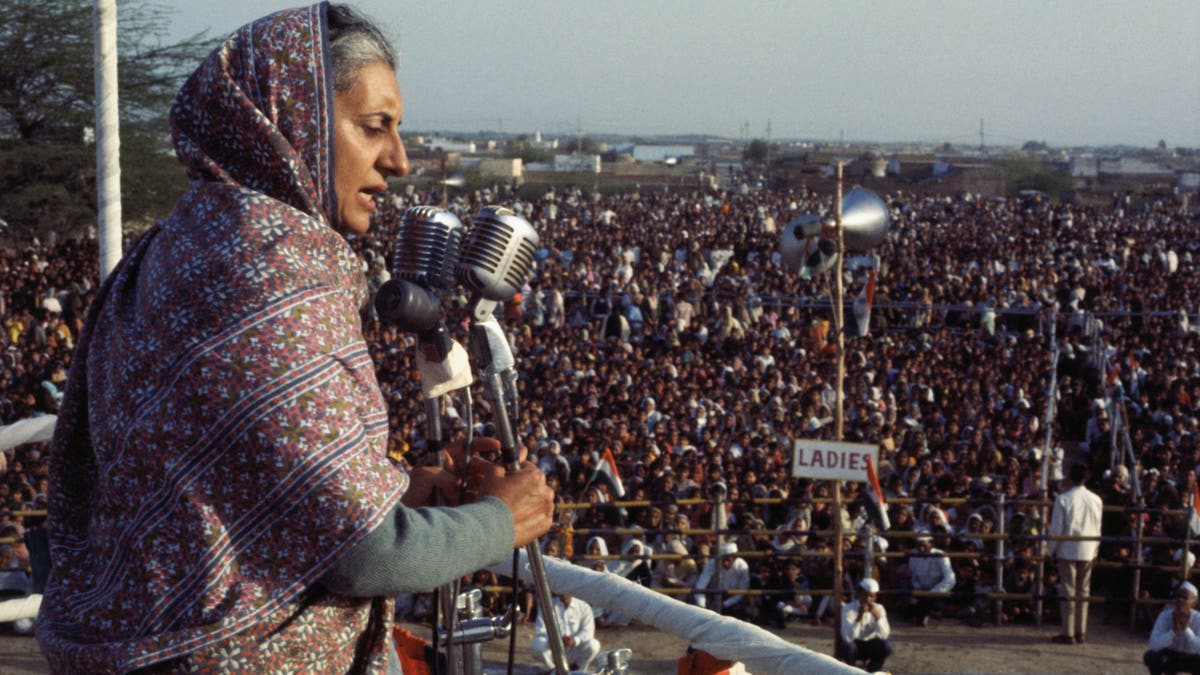
Indira Gandhi’s tenure has been characterized by significant economic and social changes, but also by allegations of authoritarianism.
Indira Gandhi becomes prime minister
Gandhi rose to power suddenly after Lal Bahadur Shastri died in 1966. At the outset of her leadership, India struggled with significant economic hardships, including high inflation and food shortages. The country’s agricultural sector was vulnerable due to its dependence on the monsoon seasons and aid from the U.S.
She also faced substantial political challenges and dedicated much of her tenure to overcoming these issues, the same issues Nehru attempted to resolve. She fought to direct India toward self-reliance and economic resilience. By 1980, India had become self-reliant and even became a nation of grain surplus, alongside notable industrial progress — achievements attributed to her governance.
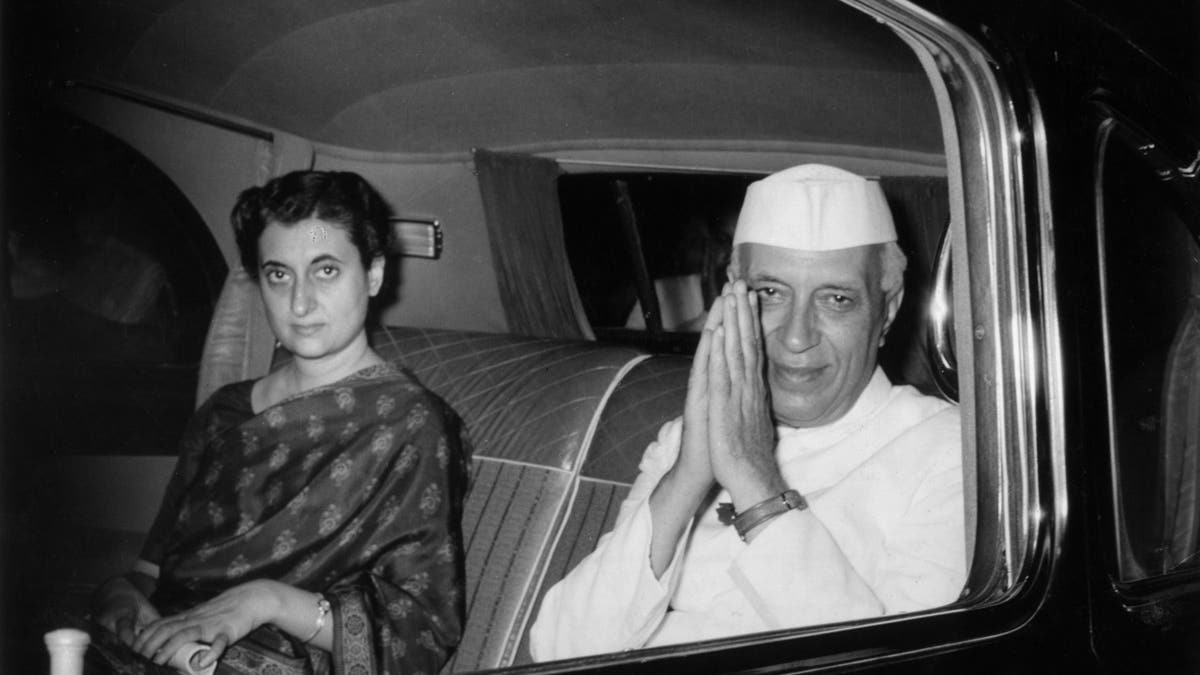
Indira Gandhi’s involvement in politics began at an early age, often accompanying her father on his political campaigns. (Hulton Archive)
Acknowledged milestones during her leadership include the triumph in the 1971 War with Pakistan, the formation of Bangladesh and the cementing of India’s status as a potential nuclear power. All of these developments strengthened India’s self-esteem.
INDIA SAYS CANADA HAS SHOWN NO EVIDENCE OF ITS ALLEGED INVOLVEMENT IN MURDER OF SIKH SEPARATIST LEADER
Her tenure ended with her assassination, leaving behind a legacy of achievements and unresolved tensions.
Indian society was divided about her; some called her “Mother Indira,” and others viewed her as authoritarian. However, it is widely accepted that her leadership shaped India and set the course for its future.
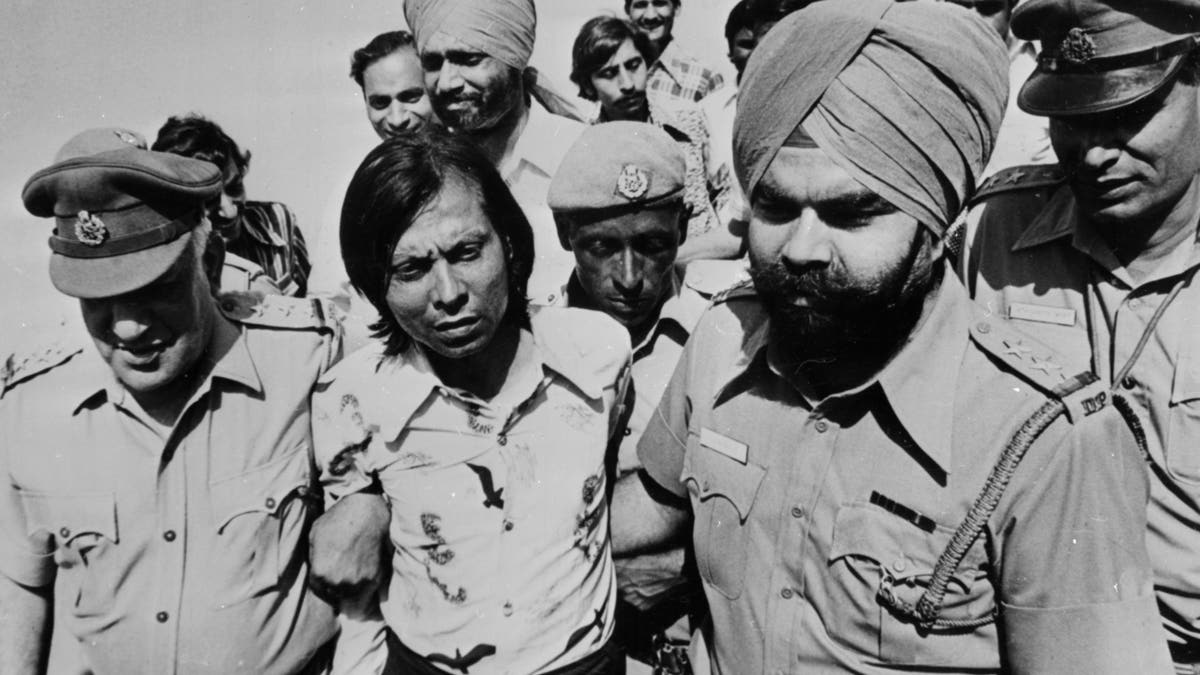
Indira Gandhi was assassinated by her own Sikh bodyguards on Oct. 31, 1984, following the events of Operation Blue Star. (Keystone/Getty )
Operation Blue Star
Gandhi’s time as prime minister was impaired by increasing tensions with Sikh separatists, culminating in Operation Blue Star. This was the Indian army’s response in June 1984 to remove militant Sikh leader Jarnail Singh Bhindranwale and his followers, who had hidden themselves within the Golden Temple in Amritsar. The militants’ substantial armaments led to a heavy-handed military response, which included the use of artillery.
The conflict ended on June 10 with the army seizing control of the temple. However, the operation, which coincided with a significant Sikh religious event, resulted in numerous civilian deaths who were present at the time. This resulted in widespread condemnation from Sikhs globally. They interpreted it as an attack on their religious community.
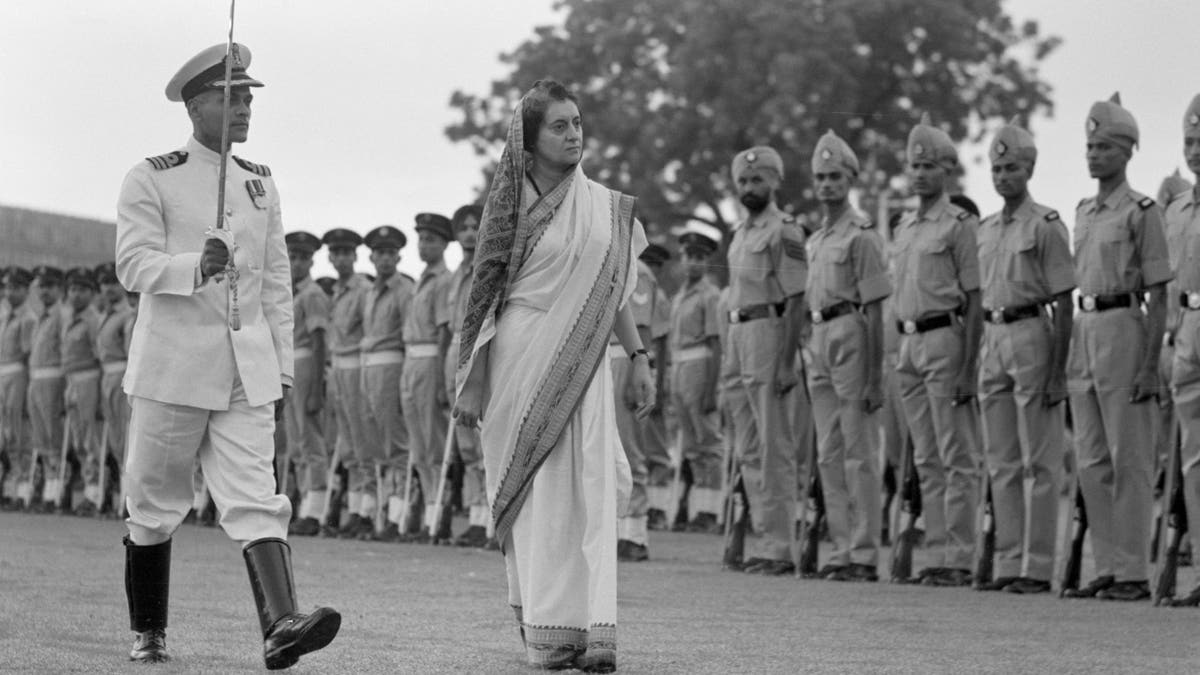
Indira Gandhi served as prime minister of India for three consecutive terms (1966-77) and a fourth term from 1980 until her assassination in 1984.
IRANIAN LAWMAKER DECLARES TEHRAN OBTAINED NUCLEAR BOMBS
The repercussions of Operation Blue Star severely damaged Gandhi’s standing with Sikhs, which eventually led to her assassination.
Assassination of Indira Gandhi
Gandhi’s assassination on Oct. 31, 1984, was committed by her bodyguards, notably Beant Singh, who was considered a favorite. The assassination was a consequence of the tensions from Operation Blue Star and led to a planned reassignment of Sikh bodyguards, including Singh. Gandhi canceled the transfer, worried about increasing her anti-Sikh persona.

Indira Gandi married Feroze Gandhi in 1942, and together had two sons, Rajiv Gandhi and Sanjay Gandhi. (Keystone/Getty)
On the morning of her assassination, despite being advised to wear a bulletproof vest, Gandhi was not wearing it.
As she walked through a gate headed to an interview, Singh shot her three times in the abdomen with his .38 revolver. Satwant Singh, another bodyguard, fired 30 rounds from his submachine gun. Following the assault, Beant was located and killed by Border Police, and Satwant was tried and executed in 1989.
Indira Gandhi’s son, Rajiv Gandhi, succeeded her as prime minister of India.
EDITOR’S NOTE: This report has been updated to clarify Indira Gandhi’s successor.

World
Celine Dion Makes Triumphant Comeback at Paris Olympics Opening Ceremony — Watch Full Performance

ad
World
95 Libyan nationals arrested in South Africa at suspected secret military training camp
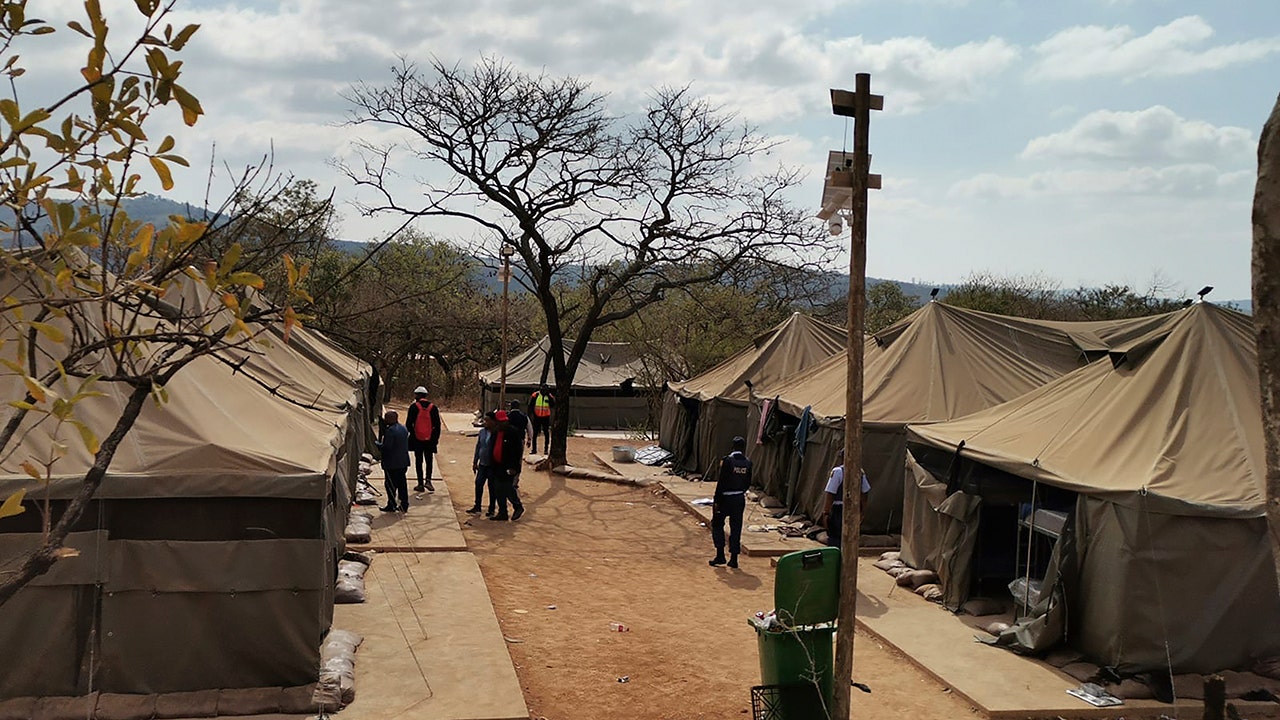
South African police arrested 95 Libyan nationals in a raid on a suspected secret military training camp on Friday and authorities said they were investigating whether there were more illegal bases in other parts of the country.
The camp was discovered at a farm in White River in the Mpumalanga province, about 360 kilometers (220 miles) northeast of Johannesburg, police said.
ELEPHANTS KILL TOURIST IN SOUTH AFRICA AFTER HE TRIED TO GET CLOSE TO TAKE PICTURES
National police spokesperson Athlenda Mathe said in a post on the social media site X that the Libyans stated they had entered the country on study visas to train as security guards, but police investigations suggest they have received military training.
The Newzroom Afrika TV news channel broadcast pictures of the site of the arrests, showing a military-style camp with large green and khaki tents set up in a row. Dozens of men were seen lining up as they were arrested. They were wearing civilian clothing.
Local government official Jackie Macie said investigations were ongoing and the owner of the farm would be questioned. He said authorities received information that there were similar secret camps near two other towns in Mpumalanga province.
A camp where 95 Libyan nationals were arrested on suspicion of running an illegal military camp are seen lining up after their arrest on Friday, July 26, 2024 in White River, South Africa. Police say that 95 Libyan nationals were arrested on suspicion of receiving training at a secret military camp in the north of the country. (AP Photo/Bulelwa Maphanga)
The province borders neighboring countries Mozambique and Swaziland and is an area of concern for South African authorities with regards to illegal immigration.
Police and authorities have not said whether the camps are suspected of being connected to a particular group or conflict.
Macie said investigations would establish if there was a network of camps in South Africa and show “why they are here doing military training in our country.”
Police said the men may be linked to crimes reported in communities close to the farm in recent months.
“We have serious cases which have been opened with the police, including cases of rape and armed robberies, which complainants claim were committed by unknown foreigners who seem to be of Asian descent,” said police spokesman Donald Mdhluli.
“We take what we have found here today very seriously because we don’t know who was training them, what were they being trained for and why that training is happening here in South Africa. It may be a threat not only to South Africa but also to the entire southern Africa region.”
Police said the operation to arrest the Libyans and close down the camp began two days ago. Macie said the Libyan nationals had been in the country since at least April.
“The 95 individuals taken into custody are all Libyan nationals and are currently being questioned by the relevant authorities,” Mpumalanga acting provincial police commissioner Maj. Gen. Zeph Mkhwanazi said in a statement.
Mdhluli, the police spokesman, said the country’s security regulator had confirmed that the kind of training that appears to have been taking place at the camp was well beyond the scope of training for security guards.
“The kind of equipment we found here shows that there was intense military training taking place here. This was basically a military base.”
World
Passengers face long, uncertain wait at stations amid rail disruption

A deliberate fire in a signal box about 60 km south of Lille caused the disruption on the northern high-speed line, with traffic halted around 5 a.m. local time on Friday.
Travel was severely disrupted in Lille on Friday, one of the stations affected by the sabotage that hit major French rail lines ahead of the Paris Olympics opening ceremony.
Many passengers waited with hope that soon turned to resignation.
“We’ve been waiting since 10:38 a.m. for the 11:38 a.m. train, and now we’re just waiting for it to arrive at 2:08 p.m.,” said Delphine, one of the stranded passengers.
“It’s still quite a delay, and we’ll be even later since we’re on a secondary route. I work in Avignon at 9 p.m., so it’s going to be very, very tight. We have a concert tonight — will it even happen? This is all very confusing, and we don’t understand what’s going on.”
For one traveller, this was a rough start to the holidays. “The worst case would be if the train is cancelled entirely and we have to buy new tickets for next week. It would shorten our already brief vacation. That would be a huge problem,” said Hippolyte.
When asked if he had been informed of the delays, Hippolyte said he received the notification just before departure.
“At around 10 a.m. this morning, we were told we were an hour late and would be leaving at 1 p.m.”
“It just keeps getting later as the day goes on. Every time we approach the new departure time, it gets pushed back another hour and a half, or half an hour each time.”
A deliberate fire in a signal box about 60 km south of Lille caused the disruption on the northern high-speed line. Traffic was halted around 5 a.m. on Friday.
The recent acts of sabotage on the rail network highlight that the Olympic Games are turning France into a prime target.
The attack disrupted the transport system on the opening day of the Games, causing delays of up to two hours or even cancellations that affected hundreds of thousands of passengers nationwide.
Authorities in Paris have said they are deploying substantial human resources to counter any threats and to ensure the safety of the events.
-

 World1 week ago
World1 week agoOne dead after car crashes into restaurant in Paris
-

 Midwest1 week ago
Midwest1 week agoMichigan rep posts video response to Stephen Colbert's joke about his RNC speech: 'Touché'
-

 News1 week ago
News1 week agoVideo: Young Republicans on Why Their Party Isn’t Reaching Gen Z (And What They Can Do About It)
-

 News1 week ago
News1 week agoIn Milwaukee, Black Voters Struggle to Find a Home With Either Party
-

 Politics1 week ago
Politics1 week agoFox News Politics: The Call is Coming from Inside the House
-

 News1 week ago
News1 week agoVideo: J.D. Vance Accepts Vice-Presidential Nomination
-

 Movie Reviews1 week ago
Movie Reviews1 week agoMovie Review: A new generation drives into the storm in rousing ‘Twisters’
-

 World1 week ago
World1 week agoTrump to take RNC stage for first speech since assassination attempt



